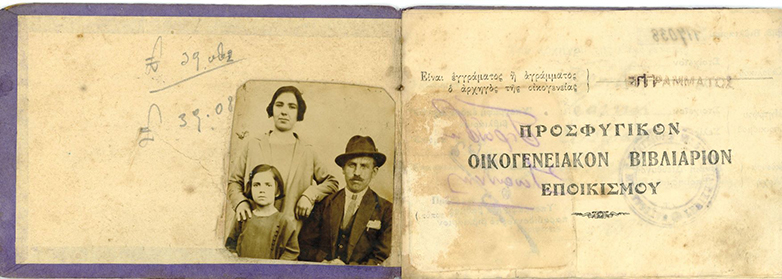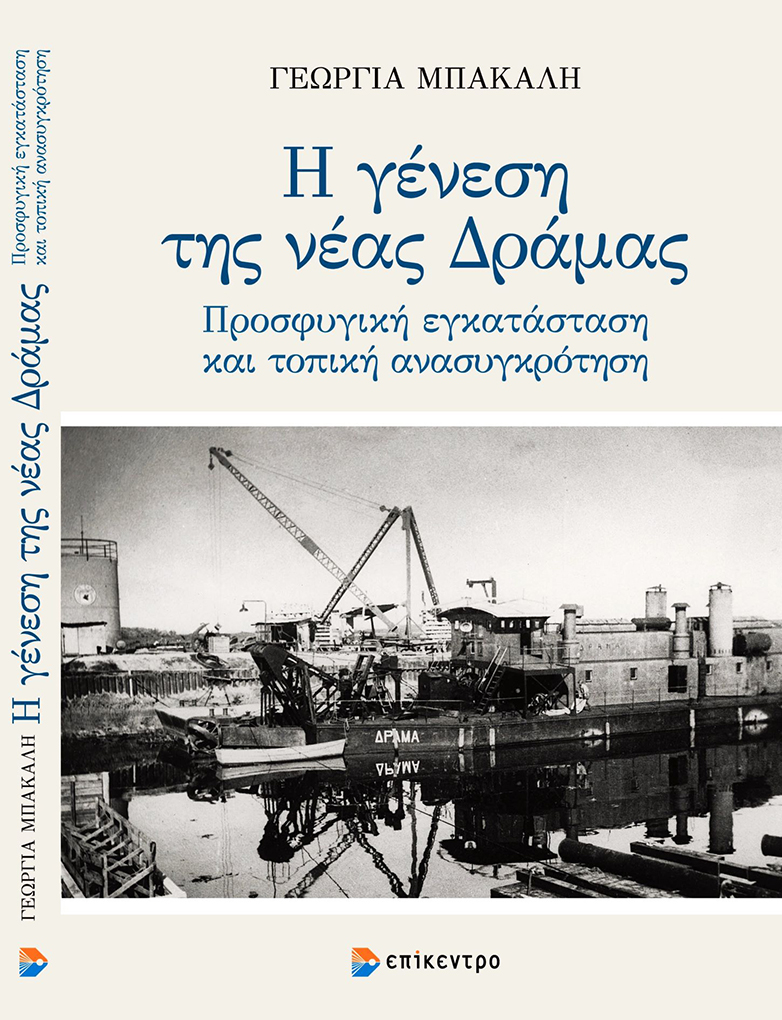The creation of a new society, the stages through which it passed until people of different cultures and ways of life acquired an organized existence, the problems and difficulties they faced until they adapted to new habits and situations, are most eloquently depicted in the new book by Dr. Georgia Bakalis, entitled: “The genesis of the new Drama. Refugee settlement and local reconstruction”.
Georgia Bakali holds a doctorate in Modern and Contemporary History from the AUTH and every time she deals with the history of the city where she lives and works – and primarily loves – the result is more than interesting, it becomes special. And this is because each of her work is based on thorough research, on the study of historical sources and literature, sometimes on testimonies of people who experienced events and situations.
ADVERTISING SPACE
“The genesis of the new Drama. Refugee settlement and local reconstruction” (published by Epikentro), under the philological editing and supervision of Dimitris Sfakianakis is her last book. To date, he has written many articles on the refugee and tobacco issues, published in collective volumes and scientific journals. In 2019 he published, together with Mr. Sfakianakis, the historical album: “The drama of the refugees. Tribute”.
How a society changed after the exchange of populations
Her new book could be described as a milestone for the local history of Drama. Perhaps for the first time it is fully understood how an entire society changed after the exchange of populations and how a new city was born. People strangers to each other had to coexist harmoniously and work collectively under adverse economic and social conditions.
ADVERTISING SPACE
As the historian Nikos Andriotis points out in the introduction, this book “is a very good contribution to the study of the refugee issue in Greece”. It takes us back to the era after 1922, when Drama – and the entire country – was faced with the historic challenge of the arrival and resettlement of thousands of expatriate refugees. At the same time, interchangeable Muslims were leaving for Turkey, based on the convention for the exchange of populations of 1923. These population movements and what followed created the conditions under which the new Drama was conceived.
Through six chapters and approximately 220 pages, the author succeeds – with direct and sometimes emotionally charged speech – to convey to the reader the climate of the time after the refugees settled, not only in their new homeland, Drama, but also in all their new homelands, in every corner of Greece. Because Mrs. Bakali’s book is a summary, a micrograph of all the important and subversive events that happened in the entire Greek area after the Asia Minor disaster.

One of the largest refugee population facilities
It should be noted that the refugee settlement in Drama is one of the largest percentage settlements of the refugee population in Greece, having experienced in previous years, like most cities in Macedonia and Thrace, the consequences and rearrangements of the Balkan Wars and World War I. World War.
With the Treaty of Neigi, in 1919, Greeks moved from Bulgaria, while the Slavic speakers who lived there left. Undoubtedly, however, the ethnological composition and peculiarity of the city was irreversibly changed and shaped by the refugee settlement and exchange of 1922-1923. refugee settlements created, recorded and presented in the pages of the book.
Through shocking testimonies and articles in the newspapers of the time, the hunger and poverty of the early years are described, as well as the efforts to collect and care for the orphaned children. The contribution of the local church and local charities is important. Urban and mainly rural rehabilitation is described in detail, while in parallel with this, the reactions caused by the arrival of thousands of refugees are presented.
“The Outcasts of Restoration”
Incidents and events are conveyed in the book, which reflect the particularly difficult conditions and the daily struggle for survival of those who settled mainly in mountainous border areas. The author calls them “restoration outcasts” and explains the reasons why these people were forced to leave these settlements and move to the city or the plains. At the same time, the professional occupations and arts of the refugees in their unforgettable homelands are transferred with them and continue in the new places of settlement from generation to generation.
The contribution of the refugees to the shaping of the economic, social and cultural life of both the city and the entire prefecture was a catalyst in the “birth” of the new Drama and is vividly reflected in the pages of Mrs. Bakali’s book. It is not only a scientific book but also a historical book with completely educational content, which is a pleasure to read, moves, sometimes even shocks the reader with its truths and the honesty it testifies.
The Muslim refugee
The author does not examine only one side of the historical reality of the exchange of populations in Greece pursuant to the Treaty of Lausanne. The book also analyzes the refugees of the Muslims, the nostalgia they feel for the homeland they are leaving behind, despite the fact that the circumstances were completely different, under which the Christians left Asia Minor and the Muslims from the north Hellas.
Finally, through the particularly accessible narration for the readers, it is established that in this book “the author is not looking for the commitments of previous eras, but the dynamics and the ways in which modern Greece, as well as modern, today’s Drama were shaped , the Drama of all of us”, underlines in the foreword Evanthis Chatzivasileiou, professor of EKPA and general secretary of the Foundation of the Parliament for Parliamentaryism and Democracy.

Source: www.zougla.gr


